Avoid hidden foreign currency exchange rate fees and save big
There are two factors that determine how much your Canadian credit card is charged when you make a purchase in a foreign currency:
- The daily currency exchange rate set by your card processor, e.g., Mastercard, Visa or American Express. This is the difference between the value of the Canadian dollar and the value of a foreign currency on any given day.
- The foreign transaction fee charged by your card issuer, e.g., RBC or TD. You might not always notice these fees on your credit card statement, as many issuers automatically include them in the purchase amounts charged to the card, rather than listing the fees as separate line items.
Does one card processor offer lower exchange rates than the other? How do the exchange rates and foreign transaction fees affect your bottom line in the long run?
Visa, Mastercard and Amex exchange rates compared
To figure out who charges the lowest fees, we looked at the exchange rates posted by Visa and Mastercard. The American Express exchange rate is no longer made public, so for the purposes of this article, we’ve given estimated rates based on past precedent and reports from Amex cardholders.
The Bank of Canada’s exchange rate is listed as a point of reference to indicate how much each processor marks up the exchange rate. Figures are averaged from daily exchange rates between November 22, 2022 to November 29, 2022.
| Providers | `1 US Dollar (USD) | 1 Euro (EUR) | 1 pound sterling (GBP) |
|---|---|---|---|
| Bank of Canada | 1.3578 CAD | 1.4043 CAD | 1.6262 CAD |
| Visa | 1.3778 CAD | 1.4368 CAD | 1.6620 CAD |
| Mastercard | 1.3911 CAD | 1.4402 CAD | 1.6688 CAD |
| American Express | 1.3581 CAD (estimate) | 1.4044 CAD (estimate) | 1.6258 CAD (estimate) |
Based on the data we pulled for these three currencies, the Mastercard exchange rate is the highest and the American Express exchange rate is the lowest; estimated rates for Visa sit between the two.
But ultimately the differences between the three are quite marginal. All three card processors do charge a slight markup compared to the Bank of Canada’s, with Mastercard’s markup the highest at between 2.45% to 2.61%, depending on the currency exchanged.
Are you getting the best currency exchange rate possible?
Although the exchange rate fluctuates daily, the markup that Visa, Mastercard and American Express charge compared to the Bank of Canada rate appears to be fairly consistent.
Based on the straight math, you would pay the least exchange fees with American Express, but it’s pretty minimal and likely won’t make a huge difference unless you’re charging $10,000+ USD to your credit card.
That being said, if you were to compare what you’re charged by your credit card provider to what banks or foreign exchange offices will charge you for exchanging currency, you’re likely getting the best rates by using your credit cards.
Banks and exchange offices set their own individual rates and the markup can be quite high depending on the currency you’re getting. Generally speaking, if you’re trying to get USD from your bank, the rates will be comparable to what your credit card charges, but if you need a currency that’s not commonly held such as the Turkish lira or Brazilian real, there could be a markup of up to 10%!
Other ways to save on foreign currency purchases
1. ‘No foreign transaction fee’ credit cards
Since the exchange rate differences between Visa, Mastercard and American Express are relatively minor, the best strategy for saving money on purchases in foreign currencies is using a credit card that doesn’t charge foreign transaction fees. These cards waive the usual 2.5% exchange fee or give you cash back on your foreign purchases, which can make up for the fees.
We’ve highlighted a few popular picks below, but be sure to check out our full list of the best credit cards with no foreign transaction fees for more options.
Scotiabank Passport® Visa Infinite* Card
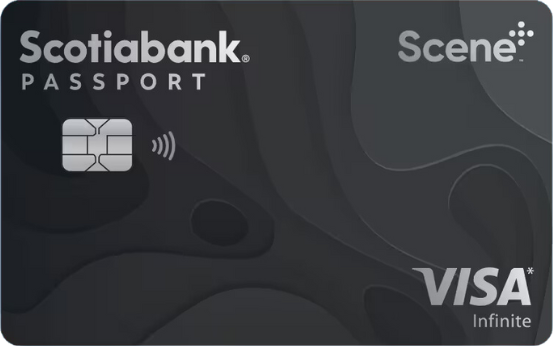
4.3
up to 35K pts
Welcome offerExcellent
Suggested credit scoreEarn up to $1,100* in value in the first 12 months, including up to 35,000 bonus Scene+ points
Expires
Jan 3, 2025
Pros
-
No FX fees means the card saves you significant expenses on foreign transaction fees
-
Earn up to 3x Scene+ points per $1 spent on eligible purchases
-
Flexible and straightforward redemption program
-
Visa acceptance globally compared to American Express, especially outside major cities.
-
Enjoy six annual visits to airport lounges
-
Robust insurance offerings, including extended travel emergency medical coverage
-
Access to Visa Infinite Program benefits, with added advantages like a free supplementary card
Cons
-
High annual fee
-
Limited rewards categories for earning reward max rate on purchases
-
Primarily best for travel within Canada
Eligibility
Excellent
Recommended Credit Score
$60,000
Required Annual Personal Income
$100,000
Required Annual Household Income
Recommended Credit Score
Excellent
Required Annual Personal Income
$60,000
Required Annual Household Income
$100,000
3x
Scene+ points¹ on every $1 you spend at Sobeys, Safeway, IGA, Foodland and participating Co-ops and more
2x
Scene+ points¹ for every $1 you spend on other eligible grocery stores, dining, eligible entertainment purchases and eligible daily transit options (including ride shares, buses, subways, taxis and more)
1x
Scene+ point for every $1 spent on all other eligible everyday purchases
Scene+ points¹ on every $1 you spend at Sobeys, Safeway, IGA, Foodland and participating Co-ops and more
3x
Scene+ points¹ for every $1 you spend on other eligible grocery stores, dining, eligible entertainment purchases and eligible daily transit options (including ride shares, buses, subways, taxis and more)
2x
Scene+ point for every $1 spent on all other eligible everyday purchases
1x
20.99%
Purchase APR
22.99%
Balance Transfer Rate
22.99%
Cash Advance APR
$150
Annual Fee First supplementary Card is $0/year ($50/year on each additional Card)
0%
Foreign Transaction Fee
Purchase APR
20.99%
Balance Transfer Rate
22.99%
Cash Advance APR
22.99%
Annual Fee
$150
Foreign Transaction Fee
0%
Pros
-
No FX fees means the card saves you significant expenses on foreign transaction fees
-
Earn up to 3x Scene+ points per $1 spent on eligible purchases
-
Flexible and straightforward redemption program
-
Visa acceptance globally compared to American Express, especially outside major cities.
-
Enjoy six annual visits to airport lounges
-
Robust insurance offerings, including extended travel emergency medical coverage
-
Access to Visa Infinite Program benefits, with added advantages like a free supplementary card
Cons
-
High annual fee
-
Limited rewards categories for earning reward max rate on purchases
-
Primarily best for travel within Canada
Eligibility
Excellent
Recommended Credit Score
$60,000
Required Annual Personal Income
$100,000
Required Annual Household Income
Recommended Credit Score
Excellent
Required Annual Personal Income
$60,000
Required Annual Household Income
$100,000
3x
Scene+ points¹ on every $1 you spend at Sobeys, Safeway, IGA, Foodland and participating Co-ops and more
2x
Scene+ points¹ for every $1 you spend on other eligible grocery stores, dining, eligible entertainment purchases and eligible daily transit options (including ride shares, buses, subways, taxis and more)
1x
Scene+ point for every $1 spent on all other eligible everyday purchases
Scene+ points¹ on every $1 you spend at Sobeys, Safeway, IGA, Foodland and participating Co-ops and more
3x
Scene+ points¹ for every $1 you spend on other eligible grocery stores, dining, eligible entertainment purchases and eligible daily transit options (including ride shares, buses, subways, taxis and more)
2x
Scene+ point for every $1 spent on all other eligible everyday purchases
1x
20.99%
Purchase APR
22.99%
Balance Transfer Rate
22.99%
Cash Advance APR
$150
Annual Fee First supplementary Card is $0/year ($50/year on each additional Card)
0%
Foreign Transaction Fee
Purchase APR
20.99%
Balance Transfer Rate
22.99%
Cash Advance APR
22.99%
Annual Fee
$150
Foreign Transaction Fee
0%
Home Trust Preferred Visa*
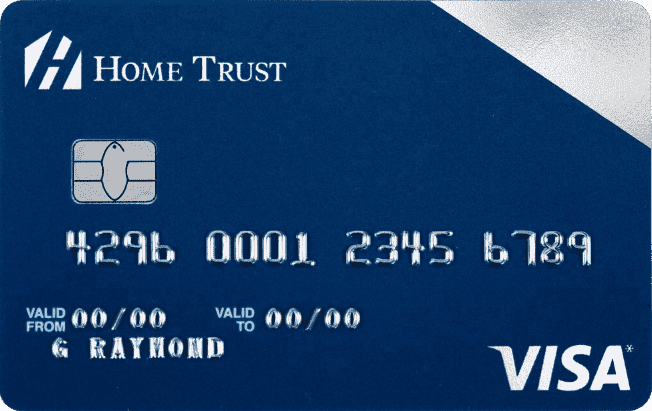
3.2
Good
Suggested credit scoreNo annual fee and no foreign exchange fees
Pros
-
No annual fee
-
1% cash back on all purchases with no cap
-
No foreign transaction fees
-
Purchase protection included
-
Ideal for frequent travelers and online shoppers
Cons
-
No cash back on transactions in foreign currency
-
Not available to Quebec residents
Eligibility
Good
Recommended Credit Score
$15,000
Required Annual Personal Income
Recommended Credit Score
Good
Required Annual Personal Income
$15,000
1%
Earn 1% cash back on all purchases with no cap.
Earn 1% cash back on all purchases with no cap.
1%
21.99%
Purchase APR
21.99%
Balance Transfer Rate
21.99%
Cash Advance APR
$0
Annual Fee No annual fee
0%
Foreign Transaction Fee no foreign transaction fee
Purchase APR
21.99%
Balance Transfer Rate
21.99%
Cash Advance APR
21.99%
Annual Fee
$0
Foreign Transaction Fee
0%
Pros
-
No annual fee
-
1% cash back on all purchases with no cap
-
No foreign transaction fees
-
Purchase protection included
-
Ideal for frequent travelers and online shoppers
Cons
-
No cash back on transactions in foreign currency
-
Not available to Quebec residents
Eligibility
Good
Recommended Credit Score
$15,000
Required Annual Personal Income
Recommended Credit Score
Good
Required Annual Personal Income
$15,000
1%
Earn 1% cash back on all purchases with no cap.
Earn 1% cash back on all purchases with no cap.
1%
21.99%
Purchase APR
21.99%
Balance Transfer Rate
21.99%
Cash Advance APR
$0
Annual Fee No annual fee
0%
Foreign Transaction Fee no foreign transaction fee
Purchase APR
21.99%
Balance Transfer Rate
21.99%
Cash Advance APR
21.99%
Annual Fee
$0
Foreign Transaction Fee
0%
Rogers Red World Elite® Mastercard®
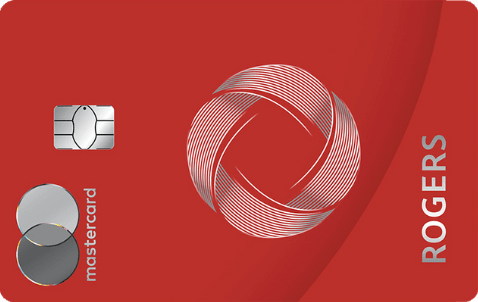
4.0
Excellent
Suggested credit scoreto receive the latest news, tips and offers by email
Pros
-
Lucrative cash back rates on USD and CAD purchases, especially for Rogers, Fido or Shaw customers
-
No annual fee with valuable insurance benefits
-
Competitive against foreign transaction fee cards
-
Convenient cash back redemption options
-
Redemption bonus of 1.5x more cash back every time you redeem for Rogers, Fido or Shaw purchases
-
Travel insurance perks and airport lounge access
Cons
-
High income requirement: $80,000 personal or $150,000 household
-
Foreign transaction fee applies
-
Limited redemption options for statement credits
Eligibility
Excellent
Recommended Credit Score
$80,000
Required Annual Personal Income
$150,000
Required Annual Household Income
Recommended Credit Score
Excellent
Required Annual Personal Income
$80,000
Required Annual Household Income
$150,000
3%
Earn 3% unlimited cash back on purchases made in US dollars
2%
Earn 2% unlimited cash back on all eligible non-US dollar purchases if you have 1 qualifying service with Rogers, Fido or Shaw
1.5%
Earn 1.5% unlimited cash back on everything else
1.5x Cash Back
Get 1.5x more cash back every time you redeem for Rogers, Fido or Shaw purchases
Earn 3% unlimited cash back on purchases made in US dollars
3%
Earn 2% unlimited cash back on all eligible non-US dollar purchases if you have 1 qualifying service with Rogers, Fido or Shaw
2%
Earn 1.5% unlimited cash back on everything else
1.5%
Get 1.5x more cash back every time you redeem for Rogers, Fido or Shaw purchases
1.5x Cash Back
20.99%
Purchase APR
22.99%
Balance Transfer Rate
22.99%
Cash Advance APR
$0
Annual Fee No annual fee
2.5%
Foreign Transaction Fee 2.5% of the transaction in CDN
Purchase APR
20.99%
Balance Transfer Rate
22.99%
Cash Advance APR
22.99%
Annual Fee
$0
Foreign Transaction Fee
2.5%
Pros
-
Lucrative cash back rates on USD and CAD purchases, especially for Rogers, Fido or Shaw customers
-
No annual fee with valuable insurance benefits
-
Competitive against foreign transaction fee cards
-
Convenient cash back redemption options
-
Redemption bonus of 1.5x more cash back every time you redeem for Rogers, Fido or Shaw purchases
-
Travel insurance perks and airport lounge access
Cons
-
High income requirement: $80,000 personal or $150,000 household
-
Foreign transaction fee applies
-
Limited redemption options for statement credits
Eligibility
Excellent
Recommended Credit Score
$80,000
Required Annual Personal Income
$150,000
Required Annual Household Income
Recommended Credit Score
Excellent
Required Annual Personal Income
$80,000
Required Annual Household Income
$150,000
3%
Earn 3% unlimited cash back on purchases made in US dollars
2%
Earn 2% unlimited cash back on all eligible non-US dollar purchases if you have 1 qualifying service with Rogers, Fido or Shaw
1.5%
Earn 1.5% unlimited cash back on everything else
1.5x Cash Back
Get 1.5x more cash back every time you redeem for Rogers, Fido or Shaw purchases
Earn 3% unlimited cash back on purchases made in US dollars
3%
Earn 2% unlimited cash back on all eligible non-US dollar purchases if you have 1 qualifying service with Rogers, Fido or Shaw
2%
Earn 1.5% unlimited cash back on everything else
1.5%
Get 1.5x more cash back every time you redeem for Rogers, Fido or Shaw purchases
1.5x Cash Back
20.99%
Purchase APR
22.99%
Balance Transfer Rate
22.99%
Cash Advance APR
$0
Annual Fee No annual fee
2.5%
Foreign Transaction Fee 2.5% of the transaction in CDN
Purchase APR
20.99%
Balance Transfer Rate
22.99%
Cash Advance APR
22.99%
Annual Fee
$0
Foreign Transaction Fee
2.5%
2. Prepaid cards
With prepaid cards, you can load your credit card in advance with funds rather than buying on credit and repaying the charges later. Some prepaid cards don’t charge foreign transaction fees and might offer higher cash back rates on foreign purchases than regular credit cards.
Other prepaid cards allow you to preload foreign currency onto your card, which voids the need for foreign exchange altogether. This is advantageous since you’ll know exactly what rate you’re paying, and you can take advantage of any dips in the exchange rate.
Read: Best prepaid cards in Canada
KOHO Extra

Fair
Suggested credit scoreto receive the latest news, tips and offers by email
Pros
-
1.5% cash back on on groceries, eating & drinking, and transportation
-
0.25% cash back on all other purchases
-
No foreign transaction fees
-
No everyday banking fees
-
Credit Building by KOHO optional paid add-on
-
Earn interest
Cons
-
$108 annual fee
-
Deposits capped at $40,000
Eligibility
Fair
Recommended Credit Score
$0
Required Annual Personal Income
$0
Required Annual Household Income
Recommended Credit Score
Fair
Required Annual Personal Income
$0
Required Annual Household Income
$0
1.5%
cash back on groceries, transportation, food, and drink
0.25%
cash back on all other purchases
4%
interest on your entire balance
5%
cash back extra at partnered merchants
$7
for credit building, instead of $10 (save 30%)
cash back on groceries, transportation, food, and drink
1.5%
cash back on all other purchases
0.25%
interest on your entire balance
4%
cash back extra at partnered merchants
5%
for credit building, instead of $10 (save 30%)
$7
$108
Annual Fee or $9 per month
0%
Foreign Transaction Fee No fx fees
Annual Fee
$108
Foreign Transaction Fee
0%
Pros
-
1.5% cash back on on groceries, eating & drinking, and transportation
-
0.25% cash back on all other purchases
-
No foreign transaction fees
-
No everyday banking fees
-
Credit Building by KOHO optional paid add-on
-
Earn interest
Cons
-
$108 annual fee
-
Deposits capped at $40,000
Eligibility
Fair
Recommended Credit Score
$0
Required Annual Personal Income
$0
Required Annual Household Income
Recommended Credit Score
Fair
Required Annual Personal Income
$0
Required Annual Household Income
$0
1.5%
cash back on groceries, transportation, food, and drink
0.25%
cash back on all other purchases
4%
interest on your entire balance
5%
cash back extra at partnered merchants
$7
for credit building, instead of $10 (save 30%)
cash back on groceries, transportation, food, and drink
1.5%
cash back on all other purchases
0.25%
interest on your entire balance
4%
cash back extra at partnered merchants
5%
for credit building, instead of $10 (save 30%)
$7
$108
Annual Fee or $9 per month
0%
Foreign Transaction Fee No fx fees
Annual Fee
$108
Foreign Transaction Fee
0%
CIBC AC Conversion Visa Prepaid Card
CIBC Air Canada AC conversion™ Visa* Prepaid Card
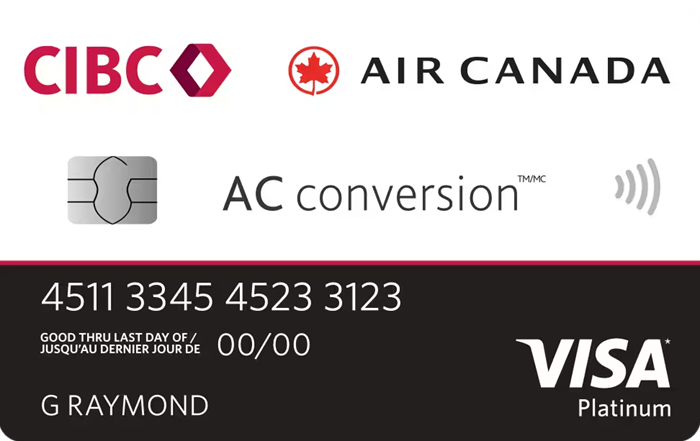
1.8
Good
Suggested credit scoreto receive the latest news, tips and offers by email
Eligibility
Good
Recommended Credit Score
$0
Required Annual Personal Income
$0
Required Annual Household Income
Recommended Credit Score
Good
Required Annual Personal Income
$0
Required Annual Household Income
$0
N/A
This card does not offer rewards
This card does not offer rewards
N/A
$0
Annual Fee No annual fee
2.5%
Foreign Transaction Fee Foreign exchange fee only applies to unsupported currencies
Annual Fee
$0
Foreign Transaction Fee
2.5%
Eligibility
Good
Recommended Credit Score
$0
Required Annual Personal Income
$0
Required Annual Household Income
Recommended Credit Score
Good
Required Annual Personal Income
$0
Required Annual Household Income
$0
N/A
This card does not offer rewards
This card does not offer rewards
N/A
$0
Annual Fee No annual fee
2.5%
Foreign Transaction Fee Foreign exchange fee only applies to unsupported currencies
Annual Fee
$0
Foreign Transaction Fee
2.5%
If you like the idea of using a prepaid card while travelling, the CIBC AC Conversion Visa is one of the top choices available in Canada, as it can be loaded with up to 10 different currencies. This allows you to make purchases in the local currency in 45 different countries. You can still use the card in other countries, but you’ll pay an additional exchange fee. Loading your card with new funds is done online via your smartphone or tablet, so you should have no issues managing your account while travelling.
3. USD Cards
USD credit cards can be useful for those who make frequent trips to the U.S. or make many purchases in U.S. dollars. Since the card has USD as the base currency, you don’t get charged any additional fees when you charge a purchase in USD. However, when it comes time to pay your bills, you’ll need to have USD available, otherwise, you pay a conversion fee when paying your bill with Canadian dollars.
BMO U.S. Dollar Mastercard®*
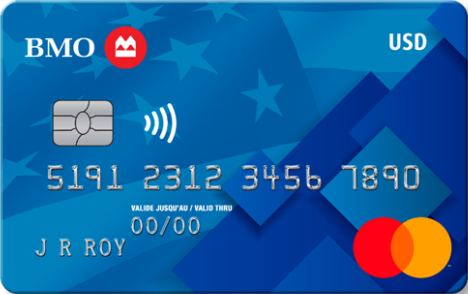
2.4
Very Good
Suggested credit scoreto receive the latest news, tips and offers by email
Pros
-
Savings on foreign transaction fees: Ideal for transactions in U.S. dollars, saving users the usual 2.5% foreign transaction fee
-
Annual fee rebate: The annual fee is rebated the following year if you spend US$3,000 per year.
-
Additional card options: You have the option to get additional cards for family members or employees for free.
-
24-hour, out-of-country emergency assistance with GlobalAssist™*
Cons
-
Limited rewards: No cash back or travel points.
-
U.S. dollar payments: Balances must be paid in U.S. dollars.
-
Credit score requirements: A higher credit score may be required to qualify for this card.
-
Limited insurance included: Purchase protection for 90 days and extended warranty, but no travel insurance.
Eligibility
Very Good
Recommended Credit Score
$15,000
Required Annual Personal Income
Recommended Credit Score
Very Good
Required Annual Personal Income
$15,000
20.99%
Purchase APR
22.99%
Balance Transfer Rate 21.99% for Quebec residents
22.99%
Cash Advance APR 21.99% for Quebec residents
$49
Annual Fee Annual fee in USD, rebated the following year if you spend $3,000 USD in one year on your card
0%
Foreign Transaction Fee No fx fees
Purchase APR
20.99%
Balance Transfer Rate
22.99%
Cash Advance APR
22.99%
Annual Fee
$49
Foreign Transaction Fee
0%
Pros
-
Savings on foreign transaction fees: Ideal for transactions in U.S. dollars, saving users the usual 2.5% foreign transaction fee
-
Annual fee rebate: The annual fee is rebated the following year if you spend US$3,000 per year.
-
Additional card options: You have the option to get additional cards for family members or employees for free.
-
24-hour, out-of-country emergency assistance with GlobalAssist™*
Cons
-
Limited rewards: No cash back or travel points.
-
U.S. dollar payments: Balances must be paid in U.S. dollars.
-
Credit score requirements: A higher credit score may be required to qualify for this card.
-
Limited insurance included: Purchase protection for 90 days and extended warranty, but no travel insurance.
Eligibility
Very Good
Recommended Credit Score
$15,000
Required Annual Personal Income
Recommended Credit Score
Very Good
Required Annual Personal Income
$15,000
20.99%
Purchase APR
22.99%
Balance Transfer Rate 21.99% for Quebec residents
22.99%
Cash Advance APR 21.99% for Quebec residents
$49
Annual Fee Annual fee in USD, rebated the following year if you spend $3,000 USD in one year on your card
0%
Foreign Transaction Fee No fx fees
Purchase APR
20.99%
Balance Transfer Rate
22.99%
Cash Advance APR
22.99%
Annual Fee
$49
Foreign Transaction Fee
0%
Which credit card has the best exchange rate?
Exchange rates are assigned by credit card processors—i.e., Visa, Mastercard or American Express—and not credit card issuers, so one specific credit card can’t be identified as having the best exchange rate. Our studies reveal that Mastercard typically has slightly better rates for major reserve currencies than Visa or Amex—but the difference is so minor that it probably shouldn’t factor into your credit card selection.
We instead recommend choosing a credit card based on its features, like its cash back or rewards rates, fees or insurance package (be sure to check out our list of the Best Credit Cards for Travel Insurance). And if you’re a frequent global traveller, waiving foreign transaction fees might be the most important, money-saving feature you should consider above all others.
What if I need to exchange cash currency?
There are several reasons why you may not wish to just rely on your credit card when travelling across the border or overseas. Many of us like to carry cash on us when making a trip abroad, thereby avoiding extra credit card fees. You also may be looking to exchange wire transfers, cheques, drafts or traveller’s cheques to or from your Canadian currency. So, how can you make sure you’re getting the best currency exchange rate when doing so?
Some banks, like RBC and TD, offer online foreign exchange currency converters for their customers, so you can find out your bank’s exchange rate instantly for the most commonly converted currencies. But before going straight to your bank, it’s a good idea to compare your bank’s rates against an objective source, like the Bank of Canada’s online currency converter. Also check the rates offered by professional currency exchange offices, taking into account any added fees charged by your bank or the currency exchange service.
Read: How to exchange currency (without getting ripped off)
Note that your bank may only post their non-cash rate (for example, what you’d get if you cashed a cheque) on their online converter, which is more favourable than their cash rate. Why? Cash rates include shipping and handling charges, while non-cash rates do not. Make sure the rate you’re given is the correct cash rate before you commit to purchasing cash currency.
Doing your due diligence when purchasing or exchanging foreign cash, either with your bank or with a currency exchange service, will allow you to avoid inflated exchange rates (including the dreaded airport and/or international ATM exchange fees!).
FAQs

Barry Choi is a Toronto-based personal finance and travel expert who makes frequent media appearances. When he's not educating people on how to be smarter with money, he's earning and burning miles and points for luxury travel.
Best credit card guides
Best credit card guides
Credit card reviews
Disclaimer
The content provided on Money.ca is information to help users become financially literate. It is neither tax nor legal advice, is not intended to be relied upon as a forecast, research or investment advice, and is not a recommendation, offer or solicitation to buy or sell any securities or to adopt any investment strategy. Tax, investment and all other decisions should be made, as appropriate, only with guidance from a qualified professional. We make no representation or warranty of any kind, either express or implied, with respect to the data provided, the timeliness thereof, the results to be obtained by the use thereof or any other matter. Advertisers are not responsible for the content of this site, including any editorials or reviews that may appear on this site. For complete and current information on any advertiser product, please visit their website.
†Terms and Conditions apply.





